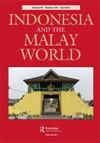数字恐同症
IF 0.9
3区 社会学
0 ASIAN STUDIES
引用次数: 5
摘要
摘要本文探讨了数字恐同症在印度尼西亚的出现,它是一个恐同话语的集合,充满了紧迫的语言、技术基础设施和关于非规范性行为的惩罚性法律。LGBT权利的国际化为反LGBT群体产生情感品质(恐惧和道德恐慌)提供了话语资本,将酷儿定位为对国家认同、“传统价值观”和意图“转化”他人为同性恋的“疾病媒介”的“威胁”。此外,社交媒体等技术基础设施助长并放大了恐同言论的传播。这些技术使公民能够直接迫害和羞辱LGBT人群,并越来越多地要求国家通过使用在线请愿书和其他影响数字空间以外酷儿的在线监控行为,制定关于性别和性行为的惩罚性法律。这些运动在法律上是有正当理由的,现行法规往往将同性恋与色情和社会猥亵联系在一起,这体现在地方和国家法律中,这些法律并不总是专门针对同性恋。因此,数字恐同症超越了网络空间,深深影响了印尼酷儿社区的物质生活和激进主义。例如,活动人士担心遭到报复,已经开始暗中开展活动。这一分析通过强调技术、恐同话语和公共政策在应对国际LGBT权利话语扩散方面的相互作用,为现有的全球恐同、监视、技术文化和性全球化学术做出了贡献。本文章由计算机程序翻译,如有差异,请以英文原文为准。
Digital homophobia
ABSTRACT This article examines the emergence of digital homophobia in Indonesia as an assemblage of homophobic discourses imbued with a language of urgency, technological infrastructures, and punitive laws on non-normative sexualities. The internationalisation of LGBT rights has provided discursive capital for anti-LGBT groups to generate affective qualities (fear and moral panic), positioning queer people as a ‘threat’ to national identity, ‘traditional values’, and ‘vectors of disease’ intent on ‘converting’ others to homosexuality. Moreover, technological infrastructure, such as social media, fosters and amplifies the circulation of homophobic rhetoric. Such technologies have enabled citizens to persecute and shame LGBT people directly, and increasingly demand that the state enact punitive laws on gender and sexuality through the use of online petitions and other online surveillance practices that affect queer people beyond the digital space. These movements are legally justified by existing regulations, often associating homosexuality with pornography and social indecency, manifested in local and national laws that do not always specifically target homosexuality. As a result, digital homophobia moves beyond the online space, deeply affecting the material life of the Indonesian queer community and activism. For instance, activists, fearing reprisal, have begun carrying out their activities surreptitiously. This analysis makes a contribution to existing scholarship on global homophobia, surveillance, and technocultural and sexual globalisation by highlighting the interplay of technology, homophobic discourses, and public policy in responding to the proliferation of international LGBT rights discourses.
求助全文
通过发布文献求助,成功后即可免费获取论文全文。
去求助
来源期刊

Indonesia and the Malay World
ASIAN STUDIES-
CiteScore
2.00
自引率
0.00%
发文量
17
期刊介绍:
Indonesia and the Malay World is a peer-reviewed journal that is committed to the publication of scholarship in the arts and humanities on maritime Southeast Asia. It particularly focuses on the study of the languages, literatures, art, archaeology, history, religion, anthropology, performing arts, cinema and tourism of the region. In addition to welcoming individual articles, it also publishes special issues focusing on a particular theme or region. The journal is published three times a year, in March, July, and November.
 求助内容:
求助内容: 应助结果提醒方式:
应助结果提醒方式:


